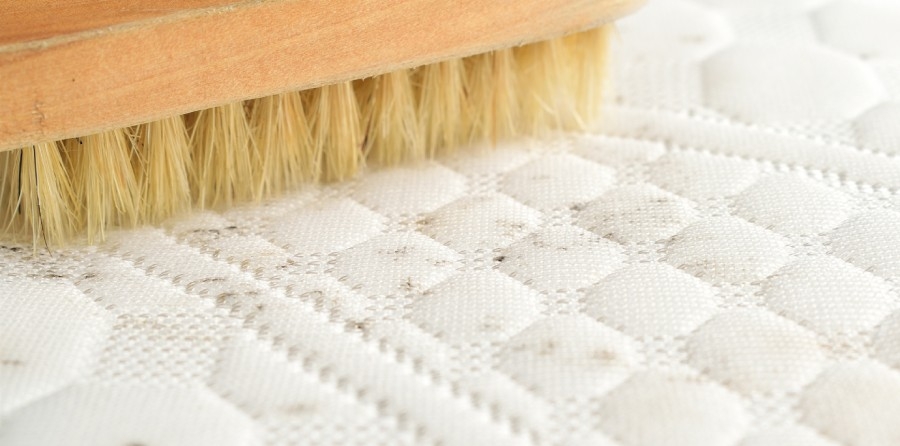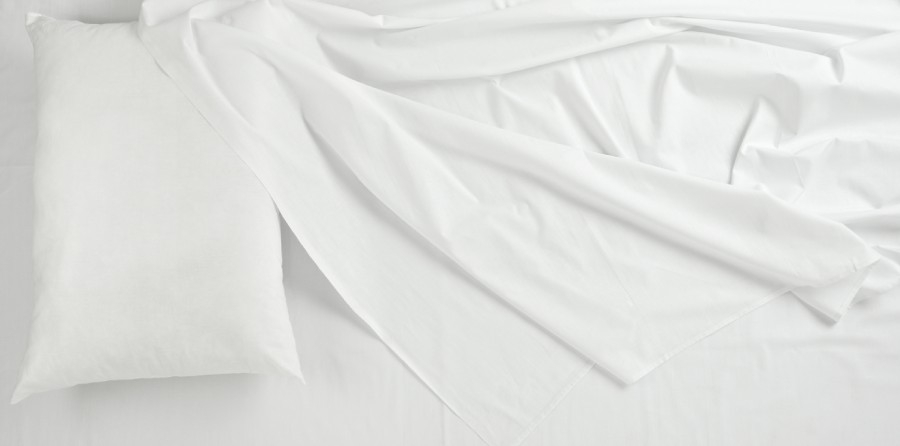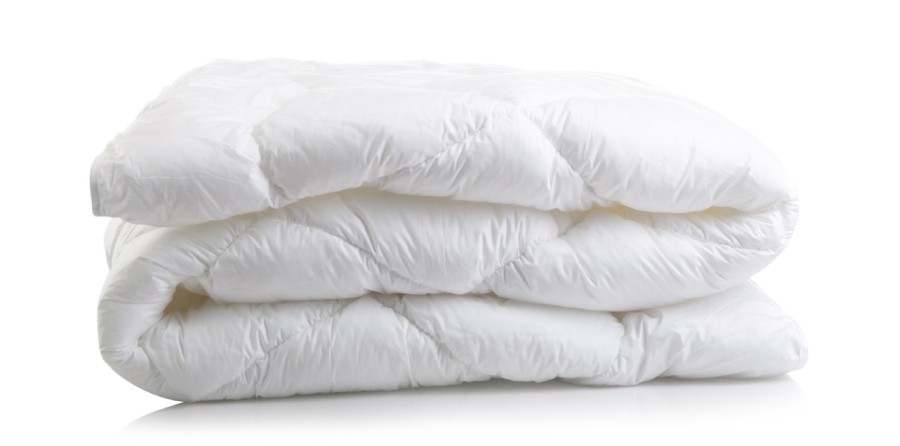How to clean stains from your mattress

There's nothing like falling into a luxury bed after a long hard day, is there? It's where we can recharge our brains, rest our bodies and enjoy 6-8 hours of peaceful sleep. If you ask most people, they'll tell you they love the smell of freshly washed bedding, and the general opinion is most of us wash our bedding once a week.
But is that true?
According to a blog post published by Metro, one-third of people wash their bedsheets once a year. When you think about how often you wash your clothing, it seems weird that we spend so much time in our beds, yet many people forget to clean their linen regularly.
Many have a problem not knowing how often they should clean their bedding, so the team here at Emma is ready to share some vital tips.
If you're wondering how often you should clean your bed linen, memory foam pillow and whether you should wash your cloud duvet, we've got the answers.
Why You Should Wash Your Sheets and Bedding

We all have different sleeping habits, and they should serve as indicators of how often we should wash our bedding. It's not something any of us wants to think about, but our environment is full of bacteria. It doesn't matter how much you vacuum your floors and wipe your kitchen counters; bacteria is always around.
Considering that we spend around one-third of our lives in bed, it makes sense to wash your bedding regularly.
Do You Have Pets?

Having a pet is an incredible experience, and our furry friends often become central family members. If you've ever had a puppy, then you'll remember the commitment you made to set boundaries and keep the pup out of the bedroom.
But those eyes. Those sad beautiful eyes.
Let's face it; most pets end up sharing our bedrooms, and animals can carry a lot of bacteria. From shedding fur to dust mites and muddy paws, both dogs and cats can turn your bed into a breeding ground for germs.
Your Bedding Harbours Natural Bacteria
You can't blame it all on your furry friend because we human beings carry around a lot of germs and bacteria. Think dead skin, sweat, and saliva, and you'll understand why it's essential to keep your bedding nice and clean.
Dust Mites Feed on Your Skin
Dust mites love to feed on dead skin, and the average human sheds around 500 million skin cells per day. If you don't clean your bedding regularly, you'll give dust mites a feast and suffer from the adverse effects.
If you have asthma, dust mites can worsen your symptoms, but they can also cause allergies and eczema.
You Could Have an Acne Flare Up
The last thing people want to do after an evening out is to spend some time removing their makeup and cleansing their skin. It's so tempting to crawl under the duvet, but makeup particles can collect on pillowcases, which means any bacteria growth will go onto your face.
This can cause acne to develop, but makeup isn't the only cause. Failing to change your pillowcases regularly (especially in summer) can also lead to breakouts.
How Often Should You Wash Your Bedding?
As we just covered, your circumstances will define how often you should clean your bedding, but some basic rules will help keep your bedding fresh and reduce the risk of developing health conditions.
The Bed Sheets & Pillowcases

Our Emma sleep experts recommend that you wash your bed sheets and pillowcases every week. This includes the actual sheet, pillowcases, and duvet cover, but very few of us manage to do it. Busy careers and personal lives mean most people change their bedding every two weeks.
If you're short on time, it's a good idea to make sure you have extra sheets, pillowcases, and duvet covers on hand. That way, you can change your bedding without waiting for it to wash and dry. It will make it a lot easier and reduce the opportunity for bacteria to grow.
Take Care of Your Pillows

You should always take care of your pillows, and we don't just mean the cases. Pillows can carry dead skin, dust mites, and even bed bugs, so it makes sense to wash them regularly. We rest our heads on them each night, and simply changing your pillowcases won't be enough to kill bacteria.
Aim to wash your pillow at least twice a year, but once every three months will ensure it remains dirt-free. We also recommend hypoallergenic pillows because they're excellent for hygiene.
The best way to clean your pillows is with hot water to kill off germs. Place them in the washing machine at a minimum temperature of 60℃.
Wash the Duvet Every Six Months

Most modern washing machines can handle duvets, but it's best to head to the launderette in some cases. By washing your duvet twice a year, you'll be able to remove any dirt, sweat, and fecal matter.
Duvets can often accumulate germs, especially if you have pets or children. If they have an accident or spill a drink, most people will immediately remove the duvet cover and wash it but forget about the duvet itself.
Duvets attract bacteria, which increases the number of dust mites and bed bugs on your bed. When you wash your duvet, it has to dry quickly, or it will smell. If you don't have a tumble dryer, it's best to take the duvet to your launderette or dry cleaners.
Don't Forget Your Mattress & Bed Frame
Each mattress comes with cleaning instructions, including how often to wash it and what you should avoid. Hoovering the mattress can save you a lot of time and is fine for most models- but always make sure you check with the manufacturer.
If you use the upholstery attachment and a low suction setting, you'll be able to remove any dirt without damaging the mattress. It's also worth giving the bed frame a vacuum and wiping it if you can.
Metal Bed Frames
If you have a metal bed frame, use a dry, soft cloth to remove dust and debris. That should be all you need to do, but if there's any dirt or grime, use a damp cloth with soapy water and dry the frame afterwards.
Wooden Bed Frames
Wood is an absorbent material, so it's essential to clean the frame regularly but always dry it afterwards. Use a damp cloth to wipe any excess dirt or grime, then dry with a duster.
Mattress Protectors
If you want to prolong the life of your mattress, a protector is a worthwhile investment. Mattress protectors often have temperature regulating features and absorb sweat, body oils and any spillages, becoming a breeding ground for bacteria.
A good mattress protector can prolong your mattress's lifespan by up to 10 years - as long as you take care of it. Our sleep specialists recommend that you put your protector in the washing machine every two months, but never tumble dry it.
The best way to ensure it retains its quality is to place the mattress protector outside and let it air dry.
Top Tips to Keep Your Bedding Clean Between Washes
While we recommend you change your sheets every week to remove dead skin cells and any bacteria, we completely understand that it's not always possible.
Washing your sheets every week can be an impossible task, especially if you have a large family, but keeping backup bedding, including pillowcases and duvet covers on hand, can save a lot of time.
Here are some top tips to keep your bedding fresh and clean between each laundry run.
Avoid Eating & Drinking in Bed
Crumbs aren't going to keep your bedding clean, so avoid eating and drinking in the bedroom. Food particles can increase the amount of bacteria that grows in your bed, but taking food into your bedroom can also disrupt your sleep routine.
Setting boundaries means you'll associate the bedroom with its primary purpose; sleeping. You also won't have to worry about stained bedding, and your sheets will last longer between washes.
Keep the Pets Out
Let's face it; keeping your pet out of your bedroom isn't an easy task. Dogs will scratch at the door, and cats let you know they're coming in whether you like it or not with loud meows that make it impossible to sleep. So there are two solutions to the problem.
The first is to let your pets in the room, but give them their own bed. Some pets want to feel close to their human friends, so they will be happy to sleep in their bed, as long as you're in the room.
If your furry friend won't settle for anything else other than sleeping on the bed with you, it's worth buying a fleece blanket and placing it over your duvet. This will act as a barrier between your pet and your bedding, but make sure you include the blanket in your weekly washing routine.
Keep Yourself Clean
When it comes to keeping your bed sheets fresh with that aromatic detergent scent, you should aim to always remove your makeup before going to bed and avoid putting on any lotions late in the evening.
If you like to indulge in a daily self-care routine, do it earlier in the evening to ensure your skin absorbs the lotion or cream properly.
Also, take the socks off. Most of us do, but if you're one of those rare people who wear socks in bed, it's time to ditch them.
Avoid Taking Naps
It's so tempting to crawl into bed after a workout, but sweat can accelerate the shedding and growth of dead skin cells, so if you have to take a nap, try to at least shower first or use your living room.
Turning In
It's clear to see that washing your bedding is essential to your mental wellbeing and maintaining a hygienic environment. There is no avoiding the fact that you need to wash sheets, pillowcases at least a fortnight, and following the maintenance rules from the Emma Sleep experts will prolong the lifespan of your bedding.
Here are some vital things to remember:
- If your bedding gets dirty for any reason, try to wash or change it immediately.
- Always check the label on your pillows, duvet, and mattress protector for washing instructions.
- Just because you can't see any dirt, it doesn't mean you're washing your bedding often enough.
By cleaning your bed sheets, duvet and pillows frequently, you can enjoy a peaceful night's sleep and make the most of your bedding.
Sleep Better. Try it Now!
.png?format=pjpg&auto=webp&quality=80&width=1920&disable=upscale)
